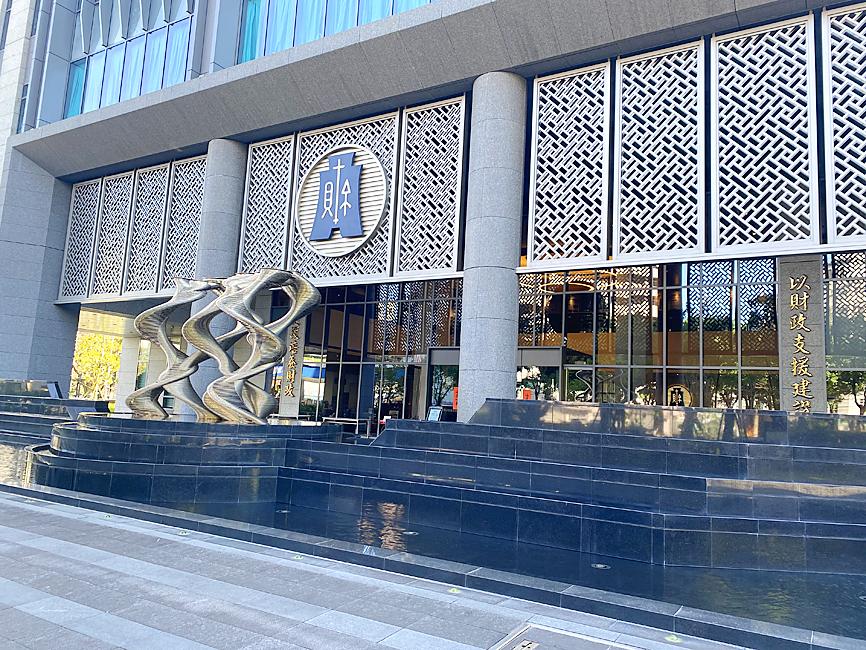The government last month collected NT$202.7 billion (US$6.97 billion) in tax revenue, up NT$1.8 billion, or 0.9 percent, from a year earlier, Ministry of Finance data showed yesterday.
The biggest increase was in business tax revenue, which rose by NT$5.4 billion, or 6.2 percent, to NT$92.6 billion, thanks to rising tax income from imported electronic components, information technology and audio-video products, as well as base metal and related finished products, the ministry said in a statement.
Other major increases in tax revenue last month came from corporate income tax, which increased by NT$2.3 billion, or 61 percent, to NT$6.1 billion, and in land value increment tax, which climbed by NT$1 billion, or 9.8 percent, to NT$10.7 9 billion, the ministry said.

Photo: Clare Cheng, Taipei Times
However, personal income tax revenue decreased by NT$5 billion, or 16 percent, from a year earlier due to differences in the time of withholding tax on year-end bonuses.
Commodity tax revenue also declined by NT$2 billion, or 13.9 percent, from the previous year, as the government lowered imported duties on fuel products to curb inflation, the ministry said.
In the first three months of the year, cumulative tax revenue rose by NT$15.5 billion, or 3.3 percent, to a record NT$482.7 billion compared with the same period last year, ministry data showed.
The January-to-March figure accounted for only 17.7 percent of the government’s target for the full year, as increases in revenues from individual income, corporate income and business taxes were offset by decreases in revenues from commodity and securities transaction taxes, the ministry said.
Individual income tax revenue increased by NT$13.6 billion, corporate income tax revenue grew by NT$7.9 billion and business tax revenue rose by NT$5.3 billion in the first three months, while commodity tax revenue declined by NT$7.7 billion over the same period, ministry data showed.
Tax revenue from securities transactions in the first three months fell by NT$5.7 billion, or 10.2 percent, to NT$50.2 billion, as the daily trading turnover on the local bourse averaged NT$363 billion, down from NT$400.7 billion a year earlier, ministry data showed.

Taiwan will prioritize the development of silicon photonics by taking advantage of its strength in the semiconductor industry to build another shield to protect the local economy, National Development Council (NDC) Minister Paul Liu (劉鏡清) said yesterday. Speaking at a meeting of the legislature’s Economics Committee, Liu said Taiwan already has the artificial intelligence (AI) industry as a shield, after the semiconductor industry, to safeguard the country, and is looking at new unique fields to build more economic shields. While Taiwan will further strengthen its existing shields, over the longer term, the country is determined to focus on such potential segments as

UNCERTAINTY: Innolux activated a stringent supply chain management mechanism, as it did during the COVID-19 pandemic, to ensure optimal inventory levels for customers Flat-panel display makers AUO Corp (友達) and Innolux Corp (群創) yesterday said that about 12 to 20 percent of their display business is at risk of potential US tariffs and that they would relocate production or shipment destinations to mitigate the levies’ effects. US tariffs would have a direct impact of US$200 million on AUO’s revenue, company chairman Paul Peng (彭雙浪) told reporters on the sidelines of the Touch Taiwan trade show in Taipei yesterday. That would make up about 12 percent of the company’s overall revenue. To cope with the tariff uncertainty, AUO plans to allocate its production to manufacturing facilities in

COLLABORATION: Given Taiwan’s key position in global supply chains, the US firm is discussing strategies with local partners and clients to deal with global uncertainties Advanced Micro Devices Inc (AMD) yesterday said it is meeting with local ecosystem partners, including Taiwan Semiconductor Manufacturing Co (TSMC, 台積電), to discuss strategies, including long-term manufacturing, to navigate uncertainties such as US tariffs, as Taiwan occupies an important position in global supply chains. AMD chief executive officer Lisa Su (蘇姿丰) told reporters that Taiwan is an important part of the chip designer’s ecosystem and she is discussing with partners and customers in Taiwan to forge strong collaborations on different areas during this critical period. AMD has just become the first artificial-intelligence (AI) server chip customer of TSMC to utilize its advanced

While China’s leaders use their economic and political might to fight US President Donald Trump’s trade war “to the end,” its army of social media soldiers are embarking on a more humorous campaign online. Trump’s tariff blitz has seen Washington and Beijing impose eye-watering duties on imports from the other, fanning a standoff between the economic superpowers that has sparked global recession fears and sent markets into a tailspin. Trump says his policy is a response to years of being “ripped off” by other countries and aims to bring manufacturing to the US, forcing companies to employ US workers. However, China’s online warriors